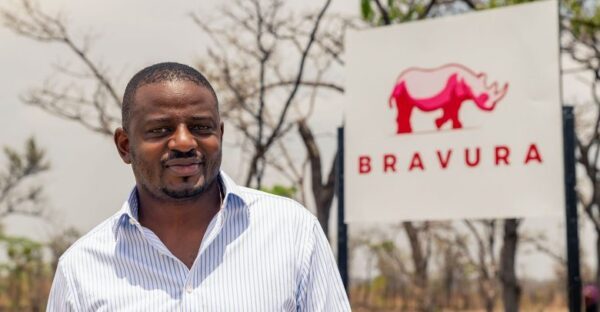Bravura Zimbabwe to settle Zim concession dispute

Bravura Zimbabwe, which is exploring for platinum in the Serui concession in Selous, Mashonaland West Province, has agreed to help the government pay a US$15m settlement to South African-based Amari Platinum, the previous holder of the concession who has battled the government in international courts, it has been learnt.
Bravura is owned by the Nigerian billionaire, Benedict Peters.
In 2011, the Ministry of Mines and Mining Development cancelled Amari’s right to operate the Serui concession after the company had spent millions of dollars exploring it and identifying an economically viable resource of 18 million ounces of platinum.
Bravura Zimbabwe (Pvt) Limited then signed a platinum mining project agreement with the Government of Zimbabwe in 2019 at a function that was presided over by President Emmerson Mnangagwa
Amari, which had signed a joint venture agreement with the State-owned Zimbabwe Mining Development Corporation, initially sued for $500m.
But after years of litigation, Amari has now settled for $15m, government sources said.
It is understood that President Mnangagwa’s administration approached Bravura, the new holders of the Serui concession, to pay the settlement.
“Bravura will pay the money to the government, which will settle with Amari. But the payment is conditional on Bravura finishing its exploration and quantifying the economic resource,” a government source who is privy to the agreement said.
The agreement could help end the long running dispute between Zimbabwe and Amari, which had further damaged the country’s image abroad as a violator of property rights.
Mines Minister Winston Chitando and Bravura’s country manager Lionel Mhlanga did not immediately respond to questions sent to them.
In November last year, Bravura said it had raised US$1bn to develop its platinum mine and then set an ambitious target to start mine construction within 18 months.
Some industry experts, however, remain skeptical about Bravura’s mining credentials as the company has no expertise in platinum mining.
Moreover, developing the mine will be no easy task. The platinum group metals deposits at Hartley have in the past proved too complex to mine, even for experienced miners.
Despite his financial acumen in Africa, Peters was forced to flee his native Nigeria and now lives in Ghana after reports of his improper financial conduct emerged in Africa’s populous country.
Last month, Nigeria’s Centre for Social Justice, Equity And Transparency (CESJET) asked the country’s Economic and Financial Crimes Commission (EFCC) to arrest and prosecute Peters over allegations bordering on conspiracy, fraud, tax evasion, corruption and money laundering.
Peters, who is chairman of the Aiteo Group of Companies, the largest domestic oil producer in Nigeria, denies the charges and alleges a political plot by his rivals.
Peters’ Aiteo was investigated on charges relating to asset transfers by EFCC and was cleared in 2017.
That same year, a court also cleared Peters on allegations of bribery and money laundering.
He won a court order in 2018 to have the EFCC remove his name from a ‘wanted list’.
His entrance into Zimbabwe’s mining sector comes at a critical time when the country is in desperate need of foreign investment to stem decades of economic decay. Some experts, who spoke to this publication this week, hope his fraud and corruption allegations will not follow him to Zimbabwe.
Zimbabwe’s frantic crave for foreign investment has often exposed the country to dubious investors who manipulate political connections to secure mining concessions for speculative purposes, analysts said.
“After the fraud and corruption allegations in Nigeria, the first test in Zimbabwe would be if he can honour the deal to settle Amari. From there, he would need to quickly move into production if he is to establish himself as a serious investor in Zimbabwe. In the last few years, we have seen just too many speculative investors, some using political connections to plunder our resources,” a local mining consultant who preferred anonymity said.
Government recently announced that it was in the process of repossessing at least 213 mining concessions that are lying idle because they were being used for speculative purposes.
Zimbabwe has the second largest known reserves of platinum group metals after South Africa but new investments into the sector have been hamstrung largely by corruption and inconsistent policies.
Business Times


